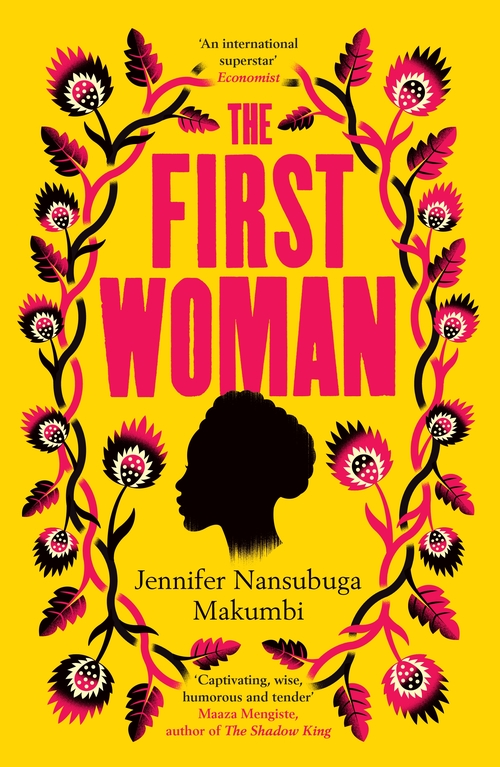
The first woman
Jennifer Nansubuga Makumbi’s new novel The first woman (A girl is a body of water in the US edition) is an excellent book about the role of women in Uganda’s patriarchal society of the 1970s. In its almost 500 pages, it covers topics such as friendship amongst women and social background, family and (step-)motherhood, sexuality and self-determination. As in her historical novel Kintu, Makumbi proves that she is an extremely competent storyteller.
The book is a coming of age story and tells of Kirabo who is looking for her mother. In the beginning, the protagonist is still a child and lives in a small village with her well-respected, wealthy grandparents and many other children of the clan. She is described as wild, stubborn, intelligent and the darling of the grandparents, who feel it as an indictment that Kirabo, despite their love, wants to find her mother, whom she has never met. Kirabo’s secret search leads her to the so-called village witch Nsuuta, who initiates her into Ugandan creation myths. These myths attribute women to the element of water and men to the land. Thus Kirabo learns how Ugandan men try to legitimize that women are not allowed to own land and have to subordinate themselves. Nsuuta also explains to her the parallels to Christian thinking, which has strongly influenced Uganda since European colonial rule. Even as a child, Kirabo questions the social order and constantly rebels in small ways.
As Kirabo grows up and attends an elitist Christian boarding school for girls, she becomes even more feminist. It is a Ugandan feminism – in Luganda mwenkanonkano – which, while also incorporating useful Western influences, is nevertheless independent and can look back on a long tradition of its own. Kirabo’s love affair with Sio, who to her delight calls himself mwenkanonkano just like her, distracts her at times from herself and the search for her mother. She experiences heartache, confrontation with other women, strong support from the extended family – and even the secret of her mother is revealed.
Ultimately, Kirabo’s story represents a slow but steady change in Ugandan society. Its character development takes place against the background of the fall of Idi Amin Dada, the Ugandan dictator, who severely restricted women’s rights. The first woman questions traditions that oppress women and make it difficult for them to form bonds. At the same time, the novel illustrates how women have always made room for their self-empowerment within the patriarchal system. The strong female characters in Kirabo’s family represent different positions – some seem rather conservative – and yet all serve as role models in their own way. As she slowly grows up, Kirabo has to decide what kind of woman she wants to be. Jennifer Nansubuga Makumbi’s The first woman is a rousing mix of Ugandan folklore and modern feminism. With its focus on cis women and heterosexual relationships, the book opens up enriching perspectives on being a woman and friendships between women. For me it was a real reading pleasure: The book is definitely one of my Top 10 of the year 2020!
Order the book here and support us! The work behind poco.lit. is done by us – Anna und Lucy. If you’d like to order this book and want to support us at the same time, you can do so from here and we will get a small commission – but the price you pay will be unaffected.

